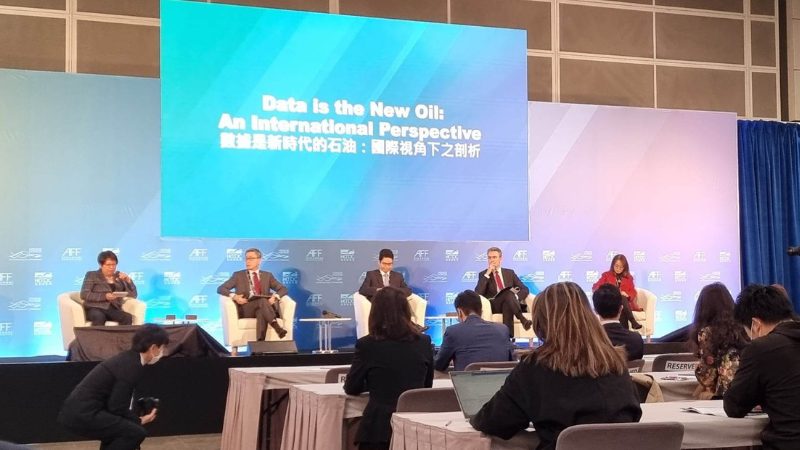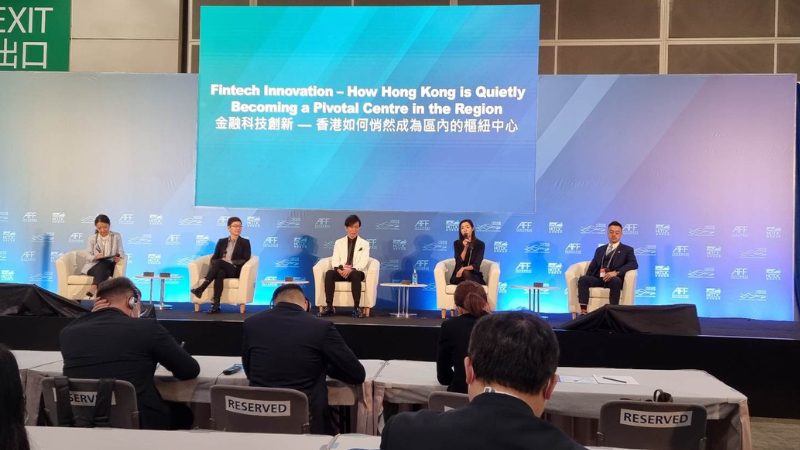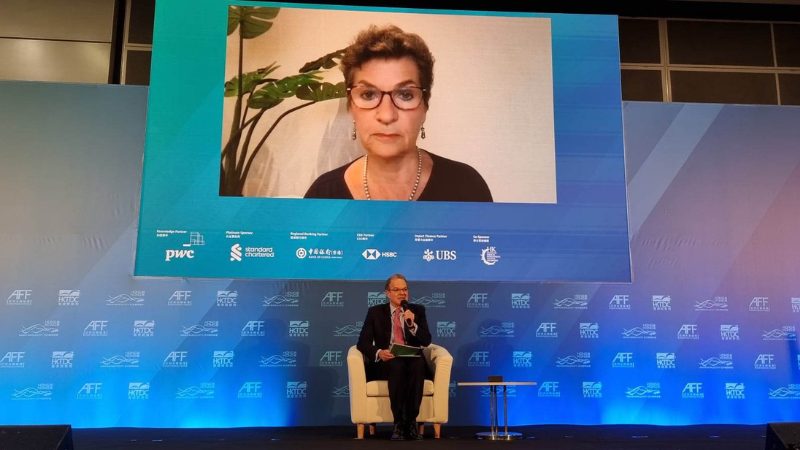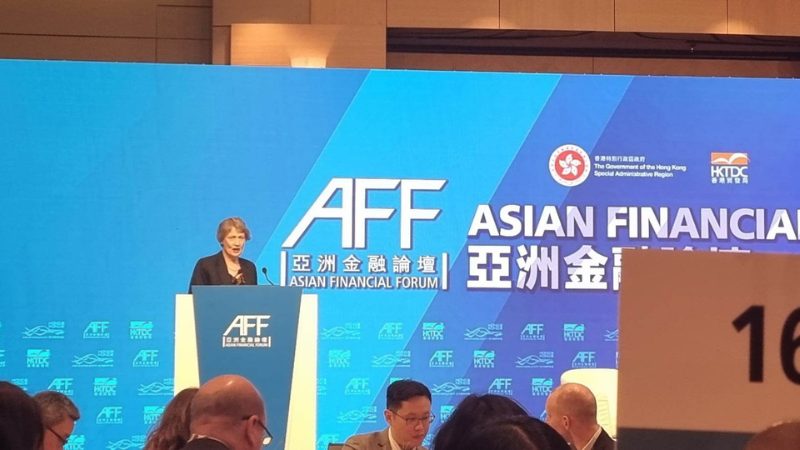On the second day of the Asian Financial Forum (AFF2023), we heard about the forces driving fintech innovation in Hong Kong and how the city is developing into a data hub.
In recent years, Hong Kong has revamped its digitalisation efforts to enhance cross-boundary data availability between China and the rest of the world. This includes the establishment of the Digital Economy Development Committee in June 2022.
In a session at AFF2023 on ‘Data is the new oil’, panellists delved into key talking points in the global data landscape as well as developments in data governance.
Joseph Chan, under secretary for Financial Services and the Treasury of Hong Kong, said: “Through the collection of various data in the economic system, followed by digitalisation, organisation and analysis of those data, we can better understand the operation of our whole economy and also different individual segments. And with that we can enhance efficiency and promote innovation.
“Hong Kong is pushing forward fintech development in order to accelerate the development of Hong Kong’s digital economy. Last year, we established the Digital Economy Development Committee to advise the government on digital economy development in Hong Kong, and to realise the importance of cross-boundary data.
“Let’s look at a fintech project called eTradeConnect, a large-scale cross-bank blockchain-based trade finance platform. It strives to enhance the efficiency, transparency and security of trade finance digitalisation of paper documents to effectively reduce the financing costs of SMEs and improve the trust between banks and SMEs by minimising the risk of duplicated financing by banks due to human errors or other potential fraud cases.
“Such cross-platform connectivity has indeed simplified and expedited the trade finance process by reducing the need for exchange of paper documents for the development of integrated online financial services between two markets, hence also strengthening the economic development in the Greater Bay area. So we can see that in terms of the adoption, application of fintech can definitely help.”

Fintech innovation
Continuing on the theme of fintech innovation, we also heard from a panel including Victor Yim of Cyberport Hong Kong, Crystal Fok of the Hong Kong Science and Technology Parks Corporation, Steffanie Yuen of the FinTech Association of Hong Kong and SK LEE of RD Technologies.
The group highlighted the city’s strength as an international finance centre and how the city is primed to assume a leading role in the fintech industry across the APAC region.
“Hong Kong is a leading market in fintech. If you can make it in Hong Kong, you can make it elsewhere,” said Yim, head of fintech at Cyberport, a digital ecosystem that houses over 380 fintech companies.
While Yuen commented that “Fintech 2.0 is beginning to deepen the financial services being provided [in Hong Kong], we can work with the Greater Bay area (Guangdong–Hong Kong–Macao Greater Bay Area) to create an even bigger market.”

Focus on climate
Looking back to the start of day two of AFF2023 and proceedings began with Christiana Figueres, executive secretary at United Nations Framework Convention on Climate Change. She shared her views on the roles that regulators, financial institutions and business leaders play in containing global warming and how they can help achieve climate goals.
She said: “We need both speed and scale in order to address climate change. There can be commitment and implementation but the distance between those two things is quite a distance. It is about time to wake up out of our ‘business as usual’ mindset and be able to both understand the risks that we face, but also the opportunities.
“Because not only would we avoid the worst impact but we would open the door to a world out there that is more stable, that is more equitable, that is much more thriving, it’s more efficient, and certainly one that is healthier. It is quite a compelling argument to do what is our responsibility to do.”

Diversity discussion
While in a keynote luncheon speech, Helen Clark, the former Prime Minister of New Zealand, shared her thoughts on how fostering inclusiveness in society can create more resilient economies.
Asked about what the financial and corporate world must do to help address inequality facing women, Clark advised: “Make sure your workplace culture really does embrace women, that women feel safe and valued, and that they can see that there’s a good career for them in the company.
“Because something has to explain that dropout rate between the level of new recruits and those who are starting to get on the management staircase. There is a 20 per cent gap and I think the gap can be bridged if we clearly value a woman’s contribution.”




